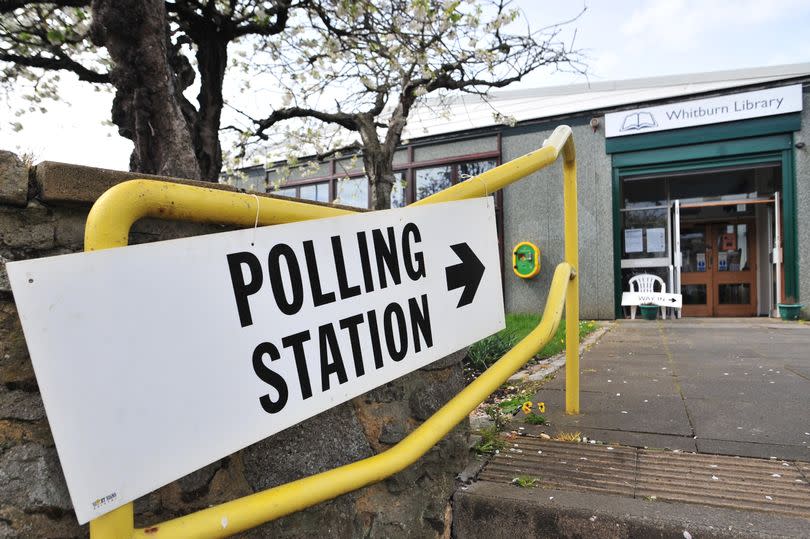The smaller political parties in the General Election and what they stand for

There are now just under three weeks to go before voters head to the polls to cast their ballots in the General Election on July 4.
The election campaign has so far been dominated by familiar political faces and parties. But aside from the established and well-known political actors, the election has brought to the fold several smaller parties many may be unfamiliar with.
Here is a guide to some of the less mainstream political organisations hoping to win votes in constituencies across the North East.
Transform Party
Transform aims to “create a socially progressive, anti-capitalist political voice for socialism and ultimately to win power”. The party describes itself also as “eco-socialist” and seeks to promote sustainability and climate justice.
The party also declares itself as a feminist, anti-racist and anti-imperialist and stands “in solidarity with oppressed people everywhere”. In addition, the party states it is committed to tackling regional inequalities within the UK.
Rachel Maughan has been selected as the Transform candidate for Bishop Auckland.
Social Democratic Party
The SDP may sound familiar to some readers, as a group that split from the Labour Party in the early 1980s.
The party now describes itself as a “patriotic, economically left-leaning, and culturally traditional political party”. Its platform include reducing net migration to 50,000 a year and the re-nationalisation of the railway system and utilities. The party also endorses the creation of a ‘British Housing Corporation’ to supervise and finance the building of 100,000 social homes annually.
The SDP has eight candidates standing across the North East in Blaydon and Consett, the City of Durham, Cramlington and Killingworth, Hexham, Newcastle East and Wallsend, Newcastle North, North Durham and North Northumberland.
The Trade Unionist and Socialist Coalition
Often abbreviated to the TUSC, the coalition was established in 2010 by the late trade union leader Bob Crow. Its stated goals include standing trade unionists, community campaigners and socialists against “pro-austerity establishment politicians”.
TUSC wants to see the return of public services, PFI contracts, industry and utilities to public ownership, alongside a progressive tax on corporations and high net worth individuals and the end of tax avoidance. It also calls for the “immediate” introduction of a £15 an hour minimum wage, “without exemptions”, which should be tied to inflation. The coalition is also advocating for the abolition of zero-hour contracts in favour of guaranteed hours and full employment rights.
Norman Hall has been selected as the TUSC candidate on July 4 for the parliamentary seat of Gateshead Central and Whickham.
The Alliance for Democracy and Freedom ADF
The Alliance for Democracy and Freedom calls itself a “centre party with common sense policies” and an alliance of “independently minded people”.
The Alliance is calling for Royal Navy interception of small boast attempting to enter British shores from France. In addition, the Party wants to see a 10,000 personnel boost in British border security forces, with military veterans where possible. A similar platform for the party includes recruiting 30,000 new police officers to patrol the nation’s streets. ADF also wants to encourage development on brownfield sites to combat the housing crisis.
Mark Conway has been selected as the party’s General Election candidate for the seat of Jarrow and Gateshead East.
The Workers' Party of Britain
The Workers' Party has made national headlines in recent month, notably with its leader George Galloway winning the parliamentary by-election in Rochdale in February this year.
Now, the party has more than 150 parliamentary candidates standing for election on July 4 across the country, including Newcastle Central and West, Newton Aycliffe and Spennymoor, and North Durham.
The party describes itself as “a socialist party” and says it is committed to the “redistribution” of wealth and power in favour of the working class. It also aims to reverse policies aimed at de-industrialisation and install working class representation in the Bank of England. On international matters, the party is calling for a “single state in which all those born in Palestine-Israel can live in peace with equal rights”.
The Heritage Party
The Heritage Party, formed in 2020, includes among its core principles traditional family values, national sovereignty, financial responsibility, energy and skills self-sufficiency.
The Party also promotes leaving the European Court of Human Rights which it claims “have made all number of rulings which prevent the UK government from imposing law and order here a home”. In addition, the party denies the existence of the climate emergency and claims the UK needs to abandon the commitments to net zero.
According to its manifesto, the party endorses the creation of new oil and gas fields in the North Sea and the commissioning of “20 or more” nuclear power stations. Adam Thewlis has been selected as the Heritage Party candidate for the constituency of Tynemouth.
The Party of Women
The Party of Women was founded and led by gender-critical activist Kellie-Jay Keen, also known as Posie Parker.
According to campaign literature, the party seeks to protect women’s spaces, including rape centres, from what it refers to as “radical transgender ideology”. The party also claims public institutions ranging from schools to the police force have been “infiltrated by transgender activists”.
The Party of Women’s candidate for the constituency of Tynemouth is local businesswoman Kelly Oliver Dougall while Liz Panton is standing in Newcastle East and Wallsend.

 Yahoo News
Yahoo News 
